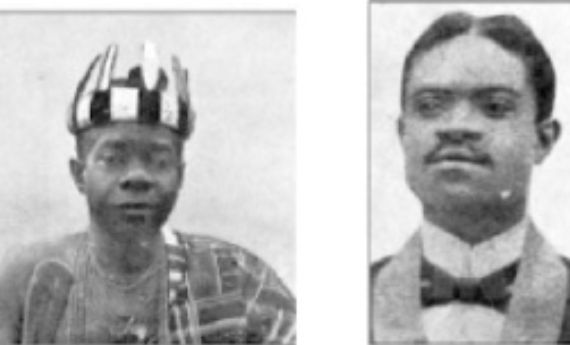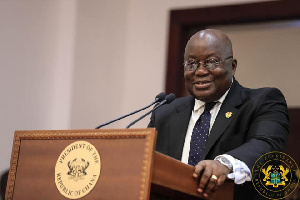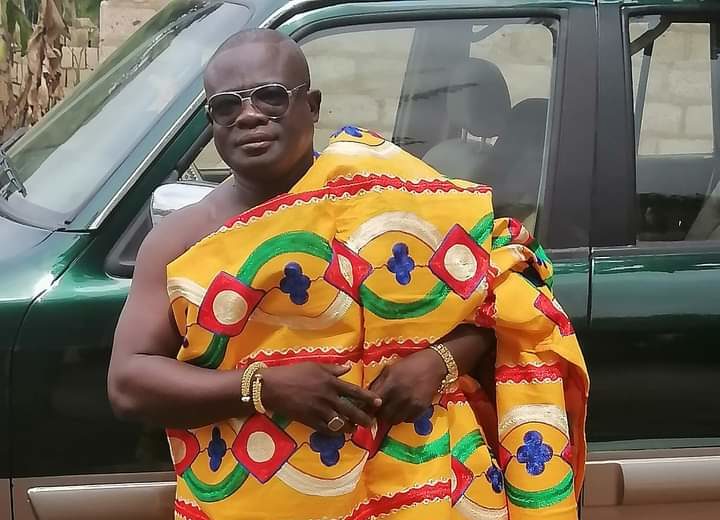The Owoo family: Know the original owners of the Achimota Forest Reserve

This is according to Executive Instrument 144
Abu Jinapor denies the forest has been sold
The most popular family today in Ghana is the Owoo family. This is because this family is demanding part of their family heritage that was taken over by the colonial government, an agreement that has been in place to this day.
The Owoo family are known to be the allodial owners of the land that has the Achimota Forest Reserve. The colonial government acquired the land from the family between 1921 and 1927 for the Achimota School.
The family in a statement issued on Thursday, May 19 said, they had to, in the past, accept and/or acquiesce to terms to enable it to move on which it strongly believes have been unfair and unjust.
“The Owoo Family has always maintained that compensation has not been paid for the 1927 acquisition, and the acreage due the Owoo family was arrived at through a long-standing negotiation which in many respects predates the current administration.
“This was done with the active involvement of various State technical negotiators and agencies. The Owoo family has petitioned all governments in the Fourth Republican dispensation and indeed is yet to take possession of any parcel of land to date.
“We commit to conducting ourselves in a manner which will not compromise the ecological integrity of the adjoining forest reserve and call on the general public to please disregard any misleading contributions to the ongoing public discussions,” the statement from the family concluded.
But who are the Owoos?
The Pen-Pictures of Modern Africans and African celebrities written by Charles Francis Hutchison and originally published in the late 1920s detail who the Owoos are.
Pages 329 – 332 of the book states that The Owoo brothers are Nee Owoo II, alias George Owoo, Esq. born in Accra, 1861 and Rebert Owoo, Esq. also born in Accra, 1866. These brothers were merchants in “funtumia elastica” – a rubber plantation.
“George Owoo, later Nii Owoo II ( born Accra 1861 – 1934) and his younger brother Robert Owoo (born Accra 1866) took advantage of the world rubber boom of the 1890s, to set up a thriving business in this product as middlemen.
“George Owoo mortgaged much of his family’s property in Dutch Accra (Kinka) to secure loans from the Basel Mission Trading Company. Profits were invested in real estate in Accra (cf. Parker 2000: 121). Tackie Tawia, Ga Mantse of the Ga State 1862-1902, opposed British policies and was deposed and deported (cf. Ib.: passim)…Nii Owoo I, who worked with the Danes as an interpreter; did useful work by saving his country from many disastrous decisions.”
The Owoos, Hutchison said, saw the light, [that] the satchels of the family were full and heavy with gold.
“When the Owoos turned to be business, they worked like Trojans; nothing gave them more pleasure than dealing in rubber – the funtumia elastica.
“The Owoos were known as the pioneers of the rubber trade and plied it for gain, but they also had some heavy losses while dealing in their trade.
The Owoos business in their funtumia elastica, stretched from Kwadoja to Jaman woods, as from Akim to Debisu.
“They were paramount in the trade, when the Ashantis teemed at Cape Coast. They stretched from [the] Cape Coast market to Lagos forests and proved the elastica there. They declared its merits and thousands followed at their wake.”
Charles Francis Hutchison continued: “Such adaptability is the spirit of the Owoos, whose strength is in landed estates. Many would have been prostrate through the evolution of the trade. A little pleasure, a lot of businesses – a motto of the Owoos.
“There were Adankoom, feasts and merriments, when the Owoos’ hearts were glad.
“Time was, when the house in Salaga market – produce markets of Accra, situated in Dutch Accra – displayed the sign of plenty…The Owoos now prefer Christianity and education: A son has been trained as a barrister-at-law and is installed at the house in Salaga market.”





